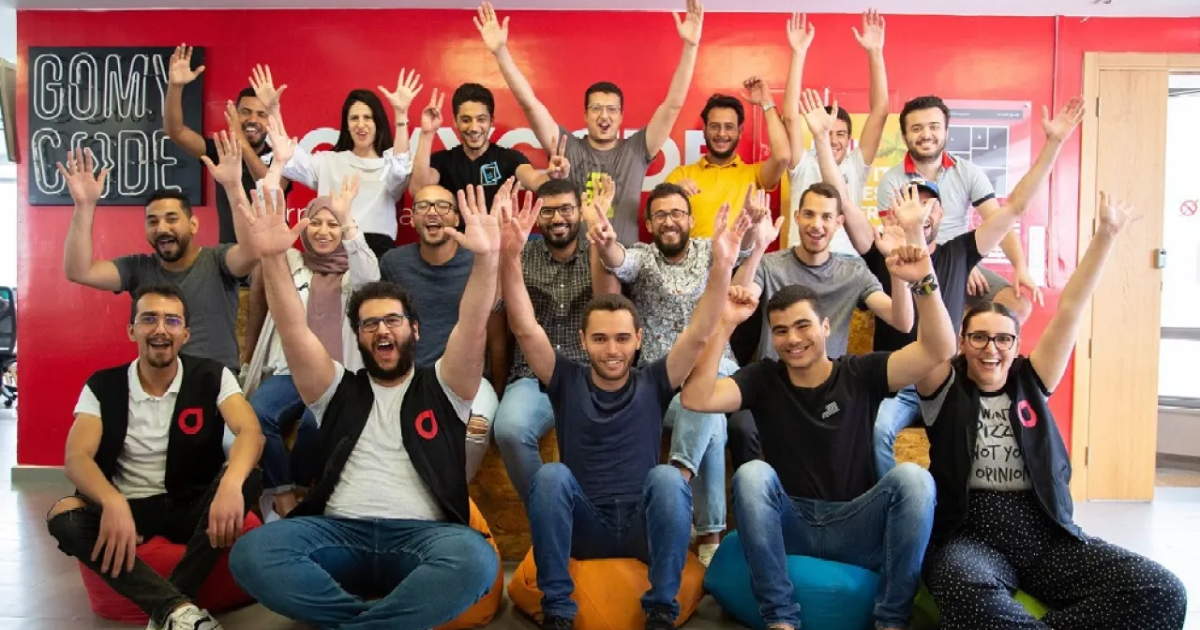GOMYCODE, Tunisia’s Edtech Startup Nabs $8M Series A Round to Scale across MEA Region

GOMYCODE, a Tunisian-based edtech startup, said today that it had raised $8 million in an early-growth round led by AfricInvest and Proparco.
Wamda Capital, a returning investor, also doubled down on its seed round investment in the digital learning platform. After raising $850,000 in venture funding in October 2020, the firm has successfully raised $8.85 million.
Yahya Bouhlel, the CEO of GOMYCODE, who founded the edtech startup in 2017, explained that he began coding in his early teens. During this period, he interned at several Palo Alto, California companies. However, the majority of his work was developing applications and iPhone games.
When he returned to Tunis, he encountered several students who wanted to build products similar to his every summer. “And it was during one of those summers in 2017 that I came up with the idea for GOMYCODE,” the CEO told Techcrunch in an interview.
Amine Bouhlel, the co-founder of GOMYCODE and Yahya’s older sibling, returned to Tunisia after finishing his studies in France and working for Amazon in London for a year. His new work required him to establish a subsidiary for a French open-source software business, which necessitated hiring developers on the ground. However, finding a significant number in Tunis proved difficult.
“At that time, I had just graduated from high school and had a free summer. Amine was struggling to find higher web developers. So the idea of building a school or a learning experience with the spirit of Silicon Valley came, and we started GOMYCODE as a summer project and camp and grew that year,” Bouhlel added.

GOMYCODE is available in eight African countries: Tunisia, Bahrain, Morocco, Egypt, Algeria, Ivory Coast, Senegal, and Nigeria. The funding will expand into 12 nations, including South Africa, Kenya, Ghana, and the Kingdom of Saudi Arabia. It also intends to expand its presence in existing countries, particularly Egypt and Nigeria, reach 100,000 students and open 50 facilities across Africa and the Middle East in the next two years. The firm has over 1,000 students join one of its 30 courses each month.
The E-learning startup uses a hybrid learning method and offers more than 30 study tracks ranging from web development to digital marketing and data science to artificial intelligence. Students must spend half of their time learning online and the other half at one of GOMYCODE’s network of 20 physical facilities. According to Bouhlel, the company has over 500 local teachers in each location who teach pupils in over 12 languages.
“We’re addressing a demand that almost no other company is capturing at our scale. Local traditional training centers offer outdated content and methodology. International online players struggle to enroll African students due to their lack of understanding of local markets and unaffordable price points. We have a blended education model, we teach in twelve local languages, and we’re positioning ourselves as a regional leader,” Bouhlel explained.
GOMYCODE students participate in two types of programs. One component comprises skill-based introductory classes that last up to three months and cost an average of $250. The other segment includes 5-month career-driven studies that cost an average of $750.
To position its graduates, the startup collaborates with other institutions. It claims that its job-placement program has successfully placed 80 percent of its students. It also works with corporate clients who use a study now-pay later arrangement for their staff. However, this model accounts for only 10% of GOMYCODE’s revenue (the company’s overall revenue has increased three times per year since its founding).
“There are a lot of impact and mass-market players. We are targeting a wide range of students. So our courses are not just for graduates or professionals, or people from a specific social class; GOMYCODE programs target mass markets, and our blended model makes us accessible and affordable, which you don’t see a lot,” he said.
The platform grew from 100 students in its first year to over 4,000 active students. About 55% of its students are from Tunisia, with the remaining 45% coming from the other seven nations.
Khaled Ben Jilani, the senior partner at AfricInvest, commented on the round, saying that he believes the African edtech market is largely untapped and that solutions like GOMYCODE “will have a significant positive impact; on everyone in the tech and education ecosystem.”
